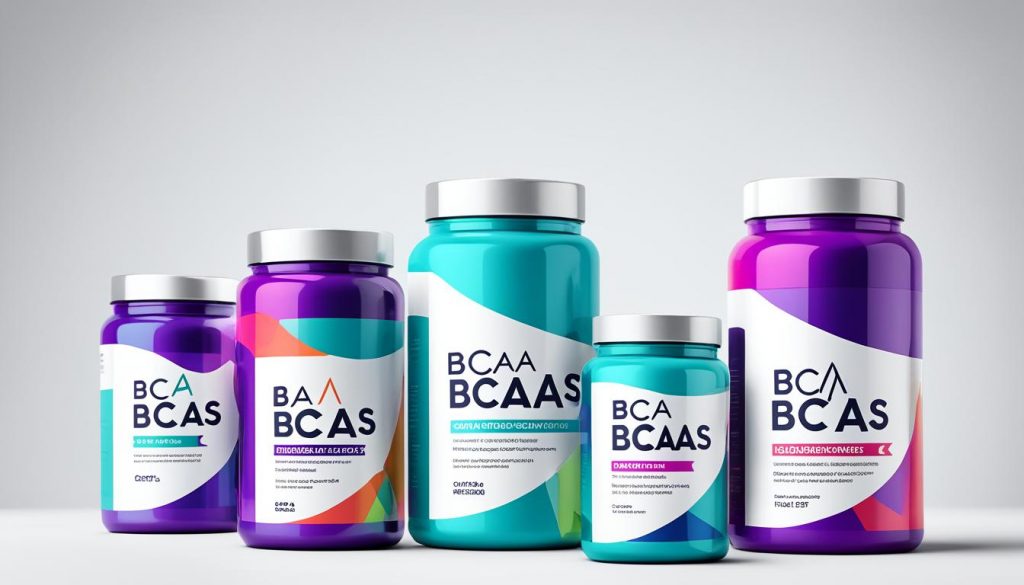Can amino acid supplements really help you lose weight? With their growing popularity in the fitness industry, it’s worth exploring the potential benefits and effectiveness of these supplements in supporting weight loss goals. Amino acids, the building blocks of proteins, play crucial roles in various bodily functions, including muscle development, hormone synthesis, and energy production. But how exactly do they contribute to weight loss, and which amino acids are the best for achieving optimal results?
Essential amino acids, such as histidine, isoleucine, leucine, lysine, methionine, phenylalanine, threonine, tryptophan, and valine, are necessary for our bodies but must be obtained through our diet. Animal products are excellent sources of all essential amino acids, while certain plants like soy, quinoa, and buckwheat provide complete protein. Amino acids have been studied for their potential to improve exercise performance, increase fat burning, and promote muscle growth.
In this comprehensive guide, we’ll delve into the role of amino acids in weight loss and explore the specific benefits of popular amino acid supplements like BCAAs (branched-chain amino acids). We’ll also discuss other amino acids that may assist in achieving weight loss goals and where to find natural sources of amino acids in your diet. Lastly, we’ll cover the considerations and potential risks of amino acid supplementation to help you make informed decisions about incorporating them into your weight loss journey.
Key Takeaways:
- Amino acids, the building blocks of proteins, play important roles in various bodily functions, including weight loss.
- Essential amino acids must be obtained from our diet, and animal products are good sources of all essential amino acids.
- BCAAs (branched-chain amino acids) are especially popular for their potential benefits in weight loss and muscle development.
- Other amino acids like L-arginine, L-glutamine, and L-carnitine may also offer weight loss benefits.
- The best sources of amino acids for weight loss come from nutritious whole foods.
The Role of Amino Acids in Weight Loss
Amino acids play a crucial role in weight loss by contributing to muscle building and maintenance, hormone regulation, and overall metabolic function. These essential building blocks of proteins are involved in the synthesis of neurotransmitters and hormones that are essential for energy metabolism and fat utilization.
While amino acids themselves do not directly cause weight loss, they can enhance fat burning and muscle preservation, which are key factors in achieving a leaner physique. Among the various amino acids, branched-chain amino acids (BCAAs) have been extensively studied for their ability to promote muscle growth and increase fat burning.
Studies have shown that BCAA supplementation, when combined with a calorie-controlled diet, regular exercise, and sufficient sleep, can potentially aid in weight loss. BCAAs specifically support muscle growth, which is important for increasing metabolic rate and enhancing the body’s ability to burn fat.
Additionally, amino acids contribute to the synthesis of hormones that regulate appetite, such as leptin and ghrelin. By maintaining proper hormone balance, amino acids can help control hunger and reduce cravings, making it easier to stick to a healthy eating plan.
Incorporating amino acid supplements into a weight loss journey can be beneficial, but it’s important to remember that they should be used as part of a comprehensive approach. A balanced diet, regular exercise, and healthy lifestyle habits are key to achieving sustainable weight loss results.
The Potential Benefits of BCAAs for Weight Loss
BCAAs (branched-chain amino acids) – leucine, isoleucine, and valine – are essential amino acids that hold potential benefits for both muscle development and weight loss. Research indicates that BCAA supplementation may enhance exercise performance, aid in recovery, reduce muscle soreness, and promote fat burning.
Several studies have shown that individuals who incorporated BCAAs into their weight loss programs experienced greater fat loss and preserved more muscle mass compared to those who did not supplement with BCAAs. In particular, leucine is thought to play a significant role in muscle protein synthesis and fat burn.
While the exact mechanisms behind these effects require further research, BCAAs have gained popularity as a valuable addition to weight loss regimens.
The Benefits of BCAAs for Weight Loss
BCAAs offer several benefits for individuals aiming to lose weight:
- Improved exercise performance: BCAAs can enhance endurance and reduce fatigue, allowing individuals to train harder and for longer periods of time.
- Enhanced recovery: BCAAs help minimize muscle damage and promote recovery after intense workouts, reducing muscle soreness and improving overall exercise performance.
- Increased fat burning: BCAAs may stimulate the body’s ability to burn fat by enhancing the utilization of fat stores as an energy source.
Table: BCAA Benefits for Weight Loss
| Benefit | Description |
|---|---|
| Improved exercise performance | Enhances endurance and reduces fatigue, allowing for more intense and longer workouts. |
| Enhanced recovery | Minimizes muscle damage, reduces muscle soreness, and promotes faster recovery after workouts. |
| Increased fat burning | Stimulates the body’s utilization of fat stores as an energy source, potentially aiding in weight loss. |
Based on these findings, BCAAs can be a valuable tool for individuals looking to lose weight. However, it’s important to note that BCAA supplementation should be used in conjunction with a balanced diet, regular exercise, and other healthy lifestyle practices to achieve optimal weight loss results.

Adding an image of a person engaging in physical exercise, such as weight lifting or running, can visually illustrate the benefits of BCAAs for weight loss. The alt attribute of the image tag contains the keyword “BCAAs for weight loss” to align with the current section.
Other Amino Acids for Weight Loss
In addition to BCAAs, there are other amino acids that have shown potential for weight loss benefits. These include L-arginine, L-glutamine, and L-carnitine. While further research is needed to confirm their effectiveness, these amino acids offer promising support for weight loss efforts.
“L-arginine has been suggested to increase fat burn and improve insulin sensitivity. This amino acid may play a role in regulating blood sugar levels and reducing body fat.”
“L-glutamine is believed to help preserve muscle mass during weight loss and support immune function. It is an essential amino acid that may contribute to overall health and well-being.”
“L-carnitine plays a crucial role in fat metabolism by facilitating the transport of fatty acids into the mitochondria for energy production. It is often used as a supplement for weight loss and athletic performance.”
While these amino acids show promise, it’s important to remember that individual results may vary. The optimal dosage and timing of supplementation for weight loss are still being studied. It is always advisable to consult with a healthcare professional or registered dietitian before starting any new supplement regimen.
To provide a comprehensive overview of the potential benefits of these amino acids for weight loss, please refer to the table below:
| Amino Acid | Potential Benefits for Weight Loss |
|---|---|
| L-arginine | Increase fat burn, improve insulin sensitivity, regulate blood sugar levels, reduce body fat |
| L-glutamine | Preserve muscle mass, support immune function |
| L-carnitine | Facilitate fat metabolism, transport fatty acids for energy production |
Please note that while these amino acids offer potential benefits for weight loss, they should not replace a balanced diet and healthy lifestyle. Incorporating whole foods rich in amino acids, such as lean proteins, grains, and legumes, is essential for overall well-being and optimal weight management.
The Best Sources of Amino Acids for Weight Loss
The best sources of amino acids for weight loss are nutritious whole foods that naturally contain them. Incorporating these foods into your diet can provide a variety of amino acids to support your weight loss goals.
Animal Products:
Animal products such as eggs, chicken, beef, salmon, and turkey are excellent sources of amino acids. They are rich in essential amino acids and provide complete protein, which means they contain all the amino acids necessary for optimal health and function.
Greek Yogurt and Nuts:
Greek yogurt and nuts are also high in amino acids. Greek yogurt is a great source of protein, containing essential amino acids that can support weight loss. Nuts, such as almonds and cashews, provide a combination of healthy fats, protein, and amino acids.
Plant-Based Sources:
For those following a plant-based diet, there are plenty of sources of amino acids available. Foods like soy, quinoa, lentils, and beans provide all the essential amino acids needed for a balanced diet. Including a variety of these plant-based protein sources in your meals can ensure an adequate intake of amino acids.
By incorporating these high protein foods into your diet, you can naturally increase your intake of amino acids and support your weight loss efforts.

Amino Acid Supplementation for Weight Loss
Amino acid supplementation can be a valuable tool for individuals who are unable to obtain sufficient amino acids through their diet alone. These supplements come in the form of powders or pills, providing a convenient way to boost protein intake and support fat burning in the pursuit of weight loss goals.
When considering amino acid supplements for weight loss, it’s essential to choose the right ones that contain the specific amino acids that align with your goals. For example, branched-chain amino acids (BCAAs) such as leucine, isoleucine, and valine are popular options due to their potential muscle-building and fat-burning benefits. Other targeted amino acids, including L-arginine, L-glutamine, and L-carnitine, are also worth exploring for their potential positive effects on metabolism and fat loss.
Important: Before starting any new supplements, it is crucial to consult with a healthcare provider. They can assess your individual needs and health conditions to provide personalized guidance for safe and effective amino acid supplementation.
The Benefits of Amino Acid Supplementation for Weight Loss
Amino acid supplementation offers several benefits that can support weight loss efforts. By incorporating these supplements into your routine, you can:
- Boost protein intake: Amino acid supplements provide an additional source of protein, which is crucial for muscle development and maintenance. This can help prevent muscle loss during weight loss and support overall metabolic function.
- Support fat burning: Certain amino acids, such as BCAAs, have been studied for their potential to enhance fat burning. By increasing fat oxidation and preserving lean body mass, amino acid supplementation can contribute to a more efficient weight loss journey.
It’s important to note that amino acid supplementation should complement a well-rounded approach to weight loss. It is not a standalone solution but rather a supportive tool that works best when combined with a calorie-controlled diet, regular exercise, and healthy lifestyle habits.
Consulting with a Healthcare Provider
For optimal results and to ensure your safety, it is crucial to consult with a healthcare provider before incorporating amino acid supplements into your weight loss regimen. They can assess your current health status, existing medications, and individual needs to provide personalized guidance.
Working with a healthcare provider will help you determine the most suitable amino acid supplements, the recommended dosage, and any potential interactions or contraindications for your specific circumstances.
A Note on Amino Acid Supplementation
“Amino acid supplementation can be a valuable addition to support weight loss efforts, but it should not be relied upon as the sole strategy. A well-rounded approach, including a balanced diet, regular exercise, and healthy lifestyle habits, is essential for long-term success.”
Remember, amino acid supplementation should never replace a balanced diet. Whole food sources are the best way to obtain essential amino acids and other necessary nutrients. Amino acid supplements should be used as a complement to fill any gaps in your nutrition and support your weight loss journey.
Considerations and Potential Risks of Amino Acid Supplements
While amino acid supplements generally have a low risk profile, it’s important to be aware of potential side effects and considerations before incorporating them into your weight loss plan. Amino acid supplementation can provide benefits, but it’s crucial to prioritize your health and consult with a healthcare provider to ensure the supplements are safe for you.
Common side effects of amino acid supplements may include:
- Nausea
- Abdominal pain
- Vomiting
- Diarrhea
- Headache
If you experience any of these side effects while taking amino acid supplements, it’s important to discontinue use and consult with your healthcare provider.
Additionally, certain amino acids may interact with medications or affect blood glucose levels. If you have any underlying health conditions or are taking medications, it’s crucial to consult with your healthcare provider before starting amino acid supplementation.
“Amino acid supplements should never be seen as a substitute for a balanced diet and healthy lifestyle.”
Amino acid supplements should be used as part of an overall weight loss plan that includes calorie control, regular exercise, and adequate sleep. They should complement a balanced diet that provides essential nutrients from whole foods.
Remember, individual needs and health conditions can vary, so it’s important to seek professional advice to ensure amino acid supplementation is suitable for you. By prioritizing your health and incorporating supplements safely, you can optimize the potential benefits of amino acids in your weight loss journey.
Potential Risks and Considerations of Amino Acid Supplements
| Considerations | Potential Risks |
|---|---|
| Consultation with healthcare provider | Interaction with medications |
| Side effects monitoring | Nausea, abdominal pain, vomiting, diarrhea, headache |
| Importance of balanced diet | Not a substitute for whole foods |
The Impact of BCAAs on Muscle Building and Fat Loss
While BCAAs are well-known for their role in muscle development, newer research suggests that they may not be the sole players in achieving optimal muscle building and fat loss. Supplementing with all the essential amino acids, not just BCAAs, may be more effective in maximizing muscle tissue growth and improving body composition.
Studies have shown that a combination of all the essential amino acids, including BCAAs, can have a greater impact on muscle building and fat loss compared to BCAA supplementation alone. By providing the body with a complete profile of amino acids, including the essential ones that cannot be produced by the body, individuals can support muscle protein synthesis and promote anabolism, the building of new muscle tissue. This can contribute to increased muscle mass and improved body composition.
Furthermore, essential amino acids are involved in various metabolic pathways that contribute to fat loss. They play a role in energy metabolism, the breakdown of fats, and the synthesis of hormones and enzymes that regulate appetite and metabolism. By ensuring an adequate intake of all essential amino acids, individuals can support these processes and optimize their fat loss efforts.
However, it’s important to note that the impact of BCAAs and essential amino acids on muscle building and fat loss is not solely determined by supplementation. Other factors, such as overall protein intake, regular strength training, and an appropriate calorie deficit, also play crucial roles in achieving desired results. A well-rounded approach that addresses these factors is key to maximizing the impact of BCAAs and essential amino acids on muscle building and fat loss.
Summary Table: Impact of BCAAs on Muscle Building and Fat Loss
| Factors | Role |
|---|---|
| Amino Acid Supplementation | Supports muscle protein synthesis and anabolism |
| Essential Amino Acid Profile | Optimizes muscle tissue growth and body composition |
| Energy Metabolism | Aids in the breakdown of fats and energy production |
| Hormone and Enzyme Synthesis | Regulates appetite, metabolism, and fat loss processes |
| Overall Protein Intake | Provides the necessary building blocks for muscle growth |
| Strength Training | Stimulates muscle growth and fat burning |
| Calorie Deficit | Promotes fat loss and body recomposition |
The Importance of a Well-Rounded Approach to Weight Loss
Amino acid supplements can be a useful addition to a weight loss plan, but they should not be considered a magic solution. Sustainable weight loss requires a well-rounded approach that includes a calorie-controlled diet, regular exercise, and healthy lifestyle habits. Amino acids, including BCAAs, can support muscle development, fat burning, and overall metabolic function, but they are most effective when combined with other weight loss strategies.
It’s important to focus on overall nutrition and ensure a balanced intake of macronutrients. This means consuming a variety of whole foods that provide essential vitamins, minerals, and fiber. Incorporating lean proteins, healthy fats, and complex carbohydrates into meals can help maintain satiety, support energy levels, and promote optimal bodily functions.
In addition to nutrition, regular exercise plays a crucial role in weight loss. Engaging in a combination of cardiovascular activities, strength training, and flexibility exercises can help burn calories, build lean muscle mass, and improve overall fitness levels. It’s important to find activities that are enjoyable and sustainable to ensure long-term adherence to an exercise routine.
Healthy lifestyle habits such as adequate sleep, stress management, and hydration also contribute to successful weight loss. Sleep deprivation and chronic stress can negatively affect hormonal balance and metabolism, making it harder to lose weight. Prioritizing quality sleep, implementing stress-reducing techniques, and staying hydrated can support overall well-being and optimize weight loss efforts.
“A well-rounded approach to weight loss involves a combination of a calorie-controlled diet, regular exercise, and healthy lifestyle habits. Incorporating amino acid supplements, along with other strategies, can complement these efforts and enhance results.”
“Sustainable weight loss is not achieved by relying solely on one method or supplement. It requires a holistic approach that addresses nutrition, exercise, and lifestyle factors.”
By adopting a well-rounded approach to weight loss, individuals can create a sustainable and healthy lifestyle that promotes long-term success. It’s important to consult with a healthcare provider or registered dietitian before starting any weight loss program or incorporating new supplements to ensure individual needs are met and potential risks are minimized.
Conclusion
As we conclude our exploration of amino acid supplements for weight loss, it is evident that these supplements, particularly BCAAs, have gained attention for their potential benefits. While research suggests that amino acids may support muscle development, fat burning, and metabolic function, it is crucial to remember that they are not a magic solution for weight loss on their own. Instead, they should be seen as one component of a comprehensive weight loss plan.
Achieving sustainable weight loss requires a well-rounded approach that includes a calorie-controlled diet, regular exercise, and healthy lifestyle habits. Amino acid supplements, including BCAAs, can play a supportive role in this journey by enhancing muscle growth, aiding fat burning, and improving overall metabolic function. However, it is essential to consult with a healthcare provider before incorporating any new supplements into your regimen.
While amino acid supplements have shown promise, they should not replace the importance of overall nutrition and lifestyle factors. Focusing on a balanced intake of nutrients, managing stress, getting enough sleep, and staying hydrated are all crucial for long-term weight loss success. By combining these elements with the strategic use of amino acid supplements, individuals can maximize their weight loss efforts and achieve sustainable results.
FAQ
What are amino acid supplements for weight loss?
Amino acid supplements are products containing specific amino acids that are claimed to support weight loss by enhancing fat burning, preserving muscle mass, and improving metabolic function.
What are the best amino acids for weight loss?
The best amino acids for weight loss include BCAAs (leucine, isoleucine, and valine), L-arginine, L-glutamine, and L-carnitine, which have been associated with benefits such as muscle development, fat burning, and metabolic regulation.
What are the benefits of amino acids for weight loss?
Amino acids play a crucial role in muscle development, hormone synthesis, energy production, and metabolic function, which in turn can support fat burning, muscle preservation, and overall weight loss efforts.
Are amino acid supplements effective for fat loss?
While amino acid supplements, especially BCAAs, have been studied for their potential fat-burning effects, more research is needed to fully understand their effectiveness in promoting fat loss.
What are the top amino acids for weight loss?
The top amino acids for weight loss include BCAAs (leucine, isoleucine, and valine), L-arginine, L-glutamine, and L-carnitine, which have been associated with benefits such as muscle development, fat burning, and metabolic regulation.
Do amino acids help with metabolism and weight loss?
Amino acids play a role in metabolism and weight loss by supporting muscle development, regulating hormones, improving energy production, and aiding in the synthesis of neurotransmitters and hormones involved in fat utilization and energy metabolism.
Are there natural amino acids for weight loss?
Yes, there are natural sources of amino acids for weight loss, such as high-protein foods like eggs, chicken, beef, salmon, Greek yogurt, nuts, soy, quinoa, lentils, and beans, which provide essential amino acids and support weight loss goals.
Can amino acids provide energy for weight loss?
Yes, amino acids play a role in energy production and can contribute to weight loss by supporting overall metabolic function and aiding in the utilization of fats for energy.
How can I include amino acids in my weight loss plan?
Amino acids can be included in a weight loss plan through the consumption of high-protein foods or through amino acid supplementation. However, it’s important to consult with a healthcare provider before starting any new supplements.
What are the potential risks and side effects of amino acid supplements?
Common side effects of amino acid supplements may include nausea, abdominal pain, vomiting, diarrhea, and headache. Some amino acids may also interact with certain medications or affect blood glucose levels. It’s important to follow recommended dosages and consult with a healthcare provider if you have underlying health conditions or are taking medications.
Do BCAAs help with muscle building and fat loss?
BCAAs, particularly leucine, isoleucine, and valine, are associated with benefits in muscle development and fat loss. However, newer research suggests that supplementing with all essential amino acids, not just BCAAs, may be more effective in maximizing muscle tissue growth and improving body composition.
What is the importance of a well-rounded approach to weight loss?
Achieving sustainable weight loss requires a well-rounded approach that includes a calorie-controlled diet, regular exercise, and healthy lifestyle habits. Amino acid supplements and other strategies should be used as part of this comprehensive approach to maximize weight loss results.


